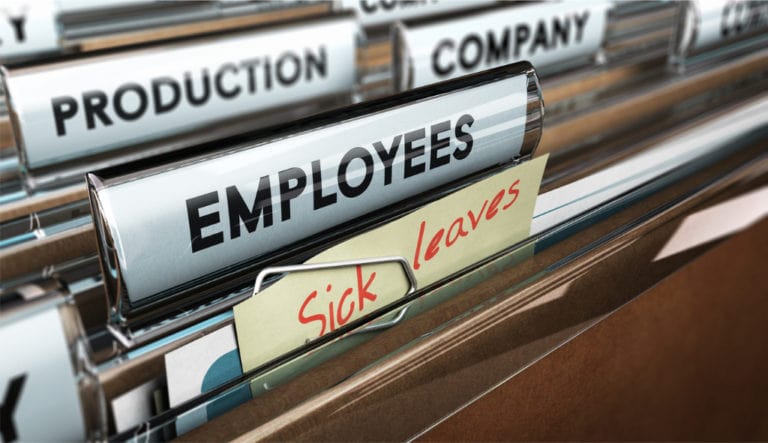Employees Have a Right to be Safe at Work Amid COVID-19 Pandemic

The challenges we are all facing due to COVID-19 have resulted in many changes at home and in the workplace. While everyone must adapt to the rules of social distancing and the mandatory Safer-at-Home restrictions, essential businesses must also ensure their employees are safe at work during this pandemic. Employees of essential businesses continue to provide vital services despite the health risks, and will keep America operating. These front-line workers are important and have rights under California law to ensure their safety, health and well-being.
Under California law, employers must provide “reasonably adequate” safety devices and safeguards to keep the work place “safe and healthful.” Moreover, California Labor Code section 6401 requires “every employer shall do every other thing reasonably necessary to protect the life, safety, and health of employees.” If your employer does not protect your health and safety, they are violating the law. While this is especially challenging during the current pandemic, employees have the right to be safe in the workplace.
EMPLOYERS MUST PROVIDE MASKS, GLOVES, SOAP AND SANITIZER
Even though the current COVID-19 pandemic is unprecedented, given our understanding of the virus and how it is spread, essential workers that have contact with the public must be provided with masks, gloves, soap and sanitizing products. In addition, employees must be given time to properly wash their hands frequently, as recommended by health care organizations. Employers must also ensure that the workplace is clean and regularly sanitized for the protection of employees and customers.
According to the Centers for Disease Control and Protection (CDC) and most health care organizations, properly washing your hands with soap and water is the most effective way to prevent the spread of COVID-19 as well as other disease.
The need for safeguards in the workplace is particularly important for health care providers and first responders who are more vulnerable simply because they are more likely to be in direct contact with contagious members of the public. Every effort must be made to provide sufficient personal protective equipment (PPE) to every front-line worker to ensure their health and safety, and avoid further contagion.
State law also requires employers to reimburse employees for any expenses spent by employees to obtain necessary safety equipment. This also includes the cost of lodging if an employee is required to self-isolate because they live with someone who is considered vulnerable to the virus or has been diagnosed with the virus.
EMPLOYERS SHOULD ACCOMMODATE VULNERABLE EMPLOYEES
Employees who are considered vulnerable to the virus by having a pre-existing medical condition, may request an accommodation to work from home. If the accommodation is reasonable, the employer must accommodate the request or may violate protections granted under California’s Fair Employment & Housing Act (FEHA). Since California is under a state of emergency due to the virus, employees should know what changes have been made to provide workers with protection during the pandemic.
For example, while employers may ask employees whether they are experiencing COVID-19 symptoms, this information is confidential and the employee’s medical condition remains private. Similarly, if a co-worker has tested positive for the virus, or is believed to have the virus, the employer must follow the guidelines established by the local public health department as well as any current state or federal health recommendations. That may include closing the work place, deep cleaning and allowing employees to work remotely. Most importantly, employers cannot reveal the name of the employees that have tested positive or are suspected of having the virus.
FREE CONSULTATION
Srourian Law Firm, with locations in Los Angeles, Westwood, Woodland Hills, and Orange County is experienced in all aspects of employment law including failure to ensure a safe and healthful workplace and have aggressively represented employees in Los Angeles, Hollywood, Santa Monica, Orange, Irvine, Anaheim, Santa Ana, Newport Beach, Costa Mesa, Fullerton, Tustin, Mission Viejo, San Clemente, Garden Grove, Laguna Niguel, Brea, Fountain Valley, Aliso Viejo, Yorba Linda, Westminster, Laguna Hills, Cypress, and La Habra.
If you or someone you know suffered employment violations as an employee such as failure to ensure a safe and healthful workplace in California, you may have certain employee rights under state and federal law and may be entitled to unpaid wages, interest, attorneys’ fees and costs, and/or be entitled to compensation as a part of the class action lawsuit. Please contact us to speak with one of our experienced lawyers for a free consultation.
Emergency Supplemental Paid Sick Leave Law to Assist Workers Affected by COVID-19

On April 7, 2020, Mayor Eric Garcetti signed an emergency order to modify the paid sick leave policy enacted by the Los Angeles City Council in March. Supplemental paid sick leave provides vital financial aid to employees unable to work due to COVID-19. Specifically, companies based in L.A. with at least 500 employees locally or 2,000 nationally must provide additional paid sick leave up to 80 hours to a broad range of employees. Smaller businesses must also provide paid sick leave benefits as well. While Mayor Garcetti’s order expands the businesses that are exempt from the law passed by the city council, the law also ensures that many employees are still protected and entitled to supplemental paid sick leave during the unprecedented worldwide pandemic.
What are the eligibility requirements?
To be eligible, employees must have been an employee working in Los Angeles between February 3, 2020 and March 4, 2020. Under the law, supplemental paid sick leave must be provided if the employee:
- is unable to work due to required or recommended self-quarantine;
- is at least 65 years old with an underlying medical condition;
- must provide care to a relative that is under quarantine; or
- must provide care for an elderly family member or a child.
What businesses are exempt?
State and federal lawmakers are taking action to protect workers’ jobs and ensure employees receive adequate financial support while at the same time, lawmakers must not place too much burden on businesses. As a result, Mayor Garcetti hopes the emergency order strikes the “necessary balance of these interests.” As a result, there are exemptions for businesses such as health and emergency care providers, global delivery services, new businesses, and government agencies serving the public health. The most significant modification to the city council’s policy was the additional eligibility requirement by Mayor Garcetti that workers be based in L.A
What do the benefits consist of?
The actual paid sick leave benefits under the law largely depend on the size of the employer. For example, full-time employees based in L.A. working for an employer with over 500 local employees (or 2,000 nationally) must provide 80 days of paid sick leave. Businesses with 100 employees or more, but under 500 employees, must provide 14 supplemental paid sick leave days if the employee is affected by COVID-19.
Smaller businesses with less than 100 employees, but more than ten must provide five days of paid sick leave and access to short-term disability benefits and paid family leave. Finally, small business with less than 10 employees and revenue less than $1 million are not required to provide supplemental paid sick leave and are exempt.
As Los Angeles, and the world, cope with COVID-19 and the disruption to the economy and businesses, important laws are being enacted to provide necessary protection to employees and businesses alike.
Employees in California already have the right to sick leave under the Healthy Workplace Families Act of 2014 and the Federal Medical Leave Act, but recent laws have been enacted to provide additional rights during the pandemic.
FREE CONSULTATION
Srourian Law Firm, with locations in Los Angeles, Westwood, Woodland Hills, and Orange County is experienced in all aspects of employment law including the right to paid sick leave and have aggressively represented employees in Los Angeles, Hollywood, Santa Monica, Orange, Irvine, Anaheim, Santa Ana, Newport Beach, Costa Mesa, Fullerton, Tustin, Mission Viejo, San Clemente, Garden Grove, Laguna Niguel, Brea, Fountain Valley, Aliso Viejo, Yorba Linda, Westminster, Laguna Hills, Cypress, and La Habra.
If you or someone you know suffered employment violations as an employee entitled to supplemental paid sick leave, you may have certain employee rights under state and federal law. workers may be entitled to paid sick leave; and may be entitled to compensation as a part of the class action lawsuit. Please contact us to speak with one of our lawyers for a free consultation.
Cannabis Workers Protected under Federal Employment Law
According to a recent decision by the U.S. Court of Appeals for the Tenth Circuit, employees in the cannabis industry are protected under the Federal Labor Standards Act (FLSA) even though the sale of marijuana is prohibited under federal law.
In the case, Kenney v. Helix TCS, the lead plaintiff, security guard Robert Kenney, filed a suit against his former employer, Helix TCS, Inc., a service provider to the legal (state-sanctioned) cannabis industry. Kenney is seeking unpaid overtime pay, damages and costs on behalf of all similarly situation security guards and site supervisors.
Workers in the Cannabis Industry May Be Entitled to Overtime Pay
In the complaint, Kenney alleges that Helix misclassified all security guards as exempt employees. and failed to pay overtime required under the FLSA. In an unsuccessful motion to dismiss, defendant Helix maintains that the FLSA applies only to legal businesses, and the sale of recreational marijuana violates federal law. In essence, despite Colorado law allowing the sale of recreational marijuana, Helix argues that due to the federal Controlled Substances Act (CSA), Kenney, and all Helix employees, are essentially engaging in illegal “drug trafficking” and therefore not protected under the FLSA.
The appellate court affirmed the denial of defendant’s motion to dismiss and held that “employers are not excused from complying with federal laws just because their business practices are federally prohibited.” Moreover, the clear intent of the FLSA is to protect the workers’ well-being, and not to regulate potential illegal activities. Similarly, marijuana workers are not specifically exempt from the FLSA nor does the CSA repeal the protection guaranteed under the FLSA for workers in the cannabis industry. On the contrary, the FLSA has been amended to exclude certain categories of employees in response to the CSA, and has refused to exclude cannabis workers from protection under the FLSA.
The Definition of “Employee” Is Very Broad Under the FLSA
Notably, the U.S. Supreme Court has recognized the “striking breadth” of the definition of employee under the FLSA and purposefully expansive scope designed to maximize the full reach of the Act. As more states legalize the sale of recreational marijuana, this case serves as a reminder that workers in the cannabis industry are protected under the FLSA despite the CSA. Moreover, this is one example of how federal law will not trump a more permissive state law and allow employers in the cannabis industry to deny protections afforded under the FLSA.
California Marijuana Workers and Employee Rights under Federal and State Laws
The California courts have yet to decide the issue of cannabis industry workers and their employee rights under the FLSA. As the courts consider this issue, marijuana workers should be aware of their rights under the California Labor Code and the FLSA. In most cases, workers in the cannabis industry are protected and have employment rights including overtime wages, meal and rest breaks, and protection from missing wages or late paychecks.

FREE CONSULTATION
Srourian Law Firm, with locations in Los Angeles, Westwood, Woodland Hills, and Orange County is experienced in all aspects of employment law including wage and overtime pay and have aggressively represented employees in Los Angeles, Hollywood, Santa Monica, Orange, Irvine, Anaheim, Santa Ana, Newport Beach, Costa Mesa, Fullerton, Tustin, Mission Viejo, San Clemente, Garden Grove, Laguna Niguel, Brea, Fountain Valley, Aliso Viejo, Yorba Linda, Westminster, Laguna Hills, Cypress, and La Habra.
If you or someone you know suffered employment violations as an employee in the cannabis industry in California, you may have certain employee rights under state and federal law. Marijuana workers may be entitled to overtime wages, meal breaks and rest breaks; and may be entitled to compensation as a part of the class action lawsuit. Please contact us to speak with one of our lawyers for a free consultation.
Coronavirus (Covid-19) FAQs for Employees
In these turbulent times, our lives are changing right in front of our eyes in all aspects, and the landscape of employment law is no exception. Employees across the state of California are experiencing layoffs, furloughs, and terminations from their job due to the Coronavirus (Covid-19) pandemic, and many employees have questions about their rights. Here are some FAQs to help:
-Q: Can my employer terminate my job due to the Coronavirus pandemic?
A: Depends on the circumstance. If the employee's relationship is not governed by any employment contract, employers are generally allowed to terminate employees at any time for any reason, including slowed business due to Coronavirus.
-Q: If my job terminates me or others due to Coronavirus, do they have to pay all my wages at the time of termination?
A: Yes. Coronavirus is not an excuse to pay wages already earned by employees. If you or others are terminated from your employment, you must be provided a final paycheck the same day of termination. That paycheck must that pays you for all your hours worked, as well must cash out any accrued vacation time.
-Q: As part of my termination due to Coronavirus, my job is making me sign a severance agreement where I agree to release any claims I have against my job... do I have to sign this agreement?
A: No. Unfortunately, during these times, employers are finding this a good time to place pressure on employees by forcing them to sign papers that are not required by law to sign. Some of these documents state that by signing those agreements, employees release any claims they have or may have against their employer. Sometimes employers are going further and offering money to the employees as a "severance" in order to secure the employee's signature and get the release of claims. If this happens to you, you should immediately ask the employer for more time to review the document, and you should seek the help of an attorney immediately as signing such a document significantly affects your rights.
-Q: Does my employer have to warn me ahead of time prior to a layoff or termination?
A: It depends. Years ago, California enacted what is called the WARN Act, which provided for penalties if employers did not sufficiently warn employees before mass-layoffs (layoffs of more than 75 people in one location). However, due to Coronavirus, laws are changing. Employers are still subject to penalties, but regulations are much more relaxed. If mass lay-offs are occurring at your job, it's best to speak with an attorney to discuss your rights.
-Q: My employer has not spoke to me in days/weeks, and is not returning any of my calls/emails. Is there anything I can do?
A: If this is the case, and your employer owes you wages, they can't just ignore you. You are entitled to collecting wages you have earned, no matter how bad things get with Coronavirus and the economy. If your employer continues to ignore you, consult with an attorney.



